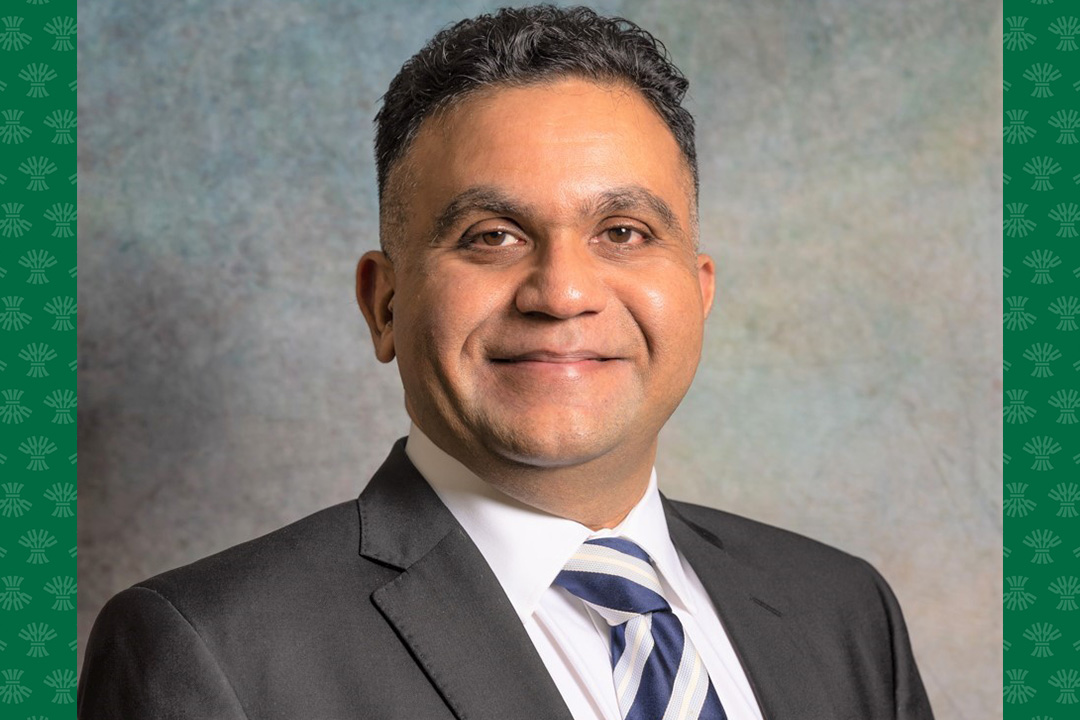
Getting to Know: Dr. Bhanu Prasad
A Q-and-A with Dr. Bhanu Prasad, a Regina-based faculty member in the Department of Medicine's Division of Nephrology.
Dr. Prasad’s team includes Dr. Aditi Sharma, PhD and Dr. Aarti Garg, PhD.
Could you provide a short description of your background?
I completed my basic training in India, residency at Dorchester, England and then completed my fellowship at Cardiff, Wales before moving to Canada and taking a position as a consultant nephrologist in Regina.
What is your area of research?
Most of our time is now spent researching a rare disease – loin pain hematuria syndrome (LPHS). This is a debilitating disease which impacts young women. Individuals afflicted with this disease are on high doses of opiates, depressed, on long-term disability and a few are actually contemplating suicide.
Initially, we were looking at expanding the use of renal denervation (RDN) for patients with LPHS. We were using the technology predominantly to treat patients with resistant hypertension. Once we started getting success with the technique to achieve pain relief, we then started to dig deeper to understand why these patients have flank pain arising from the kidneys (loin pain) and blood in urine (hematuria). We believe that hematuria is due to mutations in the genes that code for the filtration barrier and that pain is due to mutations in the pain circuits leading to amplification of the pain pathways. I and two other research scientists are also involved in research on frailty, fractures in the context of chronic kidney disease and relationship of glomerulonephritis with geolocations.
Could you tell us about your ‘big moments of research’?
The biggest moment clearly was the first patient that underwent renal denervation for LPHS. She liked skydiving, hiking and clearly was an outdoor person. However, due to her illness, she was bedbound, depressed, and off work. Once we did the RDN procedure (after achieving Health Canada approval), she was completely pain-free, went off opiates, started to go back to work, started a family and was able to resume skydiving. The impact of the procedure on her life was incredible to us as a team.
Do you have any advice for early-career clinicians on how to get involved in research? Or any messages for junior researchers?
Fee-for-service clinicians always struggle to do research as there is no dedicated time. To circumvent that challenge, we decided to do research that can be integrated into the clinical work.
To share a couple of examples: our initial project was to look at the value of performing bone density scans in predicting fractures in patients with chronic kidney disease. The next project was looking at central blood pressures and pulse wave velocities in patients with advanced chronic kidney disease (CKD) and then subsequently completed projects looking at frailty and outcomes in CKD.
I always tell new or early career clinicians that doing research projects that can be interwoven into day-to-day practice helps us get a start. We were lucky in the Regina Qu’Appelle Health Region to have a Department of Research and Performance Support which employed brilliant research scientists and I was able to get some dedicated time from them to help me with research ethics board proposals and other paperwork. So, sitting down with a similar department in your local hospital would be the second thing to do.
The third is to form relationships with people who have done this a lot longer and to tap into available resources (statistical support, reviewing and editing our manuscripts, etc.) Foremost, researchers need to sit down with the department heads and express their interest.
What are your future research aspirations?
We are in the process of doing genetic studies to understand the molecular pathways of both pain and blood in urine for patients with LPHS. The team is dedicated to find answers to this rare, underappreciated condition. For the last 60 years, the pathophysiology of this disease has remained a mystery.
Our aspiration is to find answers and hopefully develop biomarkers that can lead to early identification and potential treatment options before patients end up on long term opiates.